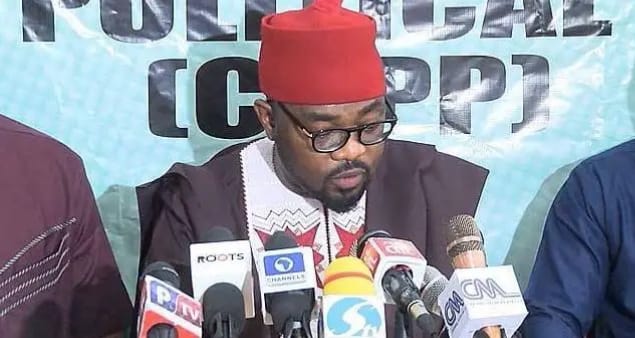Nigeria
Ugochinyere criticizes PDP governors and leaders for permitting Wike presence at caucus meeting

The political landscape in Nigeria recently witnessed a sharp rebuke from Chief Ugochinyere, the leader of a prominent political group, who lambasted the governors and leaders of the People’s Democratic Party (PDP) for permitting Governor Nyesom Wike of Rivers State to attend a caucus meeting.
This criticism comes amidst growing tensions within the PDP, highlighting internal rifts and dissent within the opposition party.
Chief Ugochinyere’s condemnation of the PDP governors and leaders for allowing Governor Wike’s attendance at the caucus meeting underscores the deep-seated divisions within the party.
His remarks reflect a broader sentiment of dissatisfaction among some party members over Wike’s perceived influence and dominance within the PDP.
The decision to allow Governor Wike, who is known for his outspokenness and strong-willed leadership style, to attend the caucus meeting has sparked controversy and debate within the PDP ranks.
Read Also: Suspended PDP Caucus leader: “Abia Speaker, Labour Party can’t intimidate me”
While some view Wike as a formidable political force and a key ally in the party’s quest for power, others see his presence as a divisive factor that undermines party unity and cohesion.
Chief Ugochinyere’s criticism of the PDP governors and leaders for acquiescing to Wike’s attendance at the caucus meeting highlights the fissures and power struggles within the party.
It reflects a broader struggle for control and influence among different factions within the PDP, as various leaders jostle for supremacy and relevance ahead of upcoming elections.
The rift between Chief Ugochinyere and the PDP leadership underscores the challenges facing the opposition party as it seeks to present a united front and mount a credible challenge to the ruling party in Nigeria.
Internal divisions and disagreements threaten to undermine the PDP’s effectiveness as an opposition force, potentially weakening its ability to mobilize support and articulate a coherent political agenda.
In response to Chief Ugochinyere’s criticism, the PDP governors and leaders have defended their decision to include Governor Wike in the caucus meeting, citing his role as a prominent member of the party and a respected leader in Nigerian politics.
They argue that Wike’s input and contributions are valuable assets to the party and should be embraced rather than marginalized.
The controversy surrounding Governor Wike’s attendance at the PDP caucus meeting highlights the complex dynamics at play within Nigeria’s political landscape.
As the country prepares for crucial elections in the coming years, internal rifts and power struggles within political parties like the PDP have significant implications for the country’s democratic process and governance.
In conclusion, Chief Ugochinyere’s criticism of the PDP governors and leaders for allowing Governor Wike to attend the caucus meeting underscores the internal challenges facing the opposition party.
The rift reflects broader tensions within the PDP and highlights the struggle for control and influence among different factions within the party.
As Nigeria navigates its political landscape, the ability of political parties like the PDP to address internal divisions and present a united front will be crucial in shaping the country’s democratic future.
